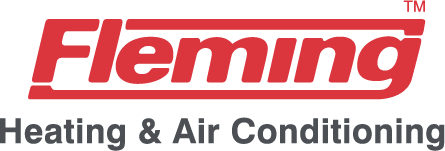
Ever done a double take when you checked your last energy bill? Even though high energy bills can be the result of extreme weather events, repeatedly high bills can quickly signify an inefficient HVAC system or your home is wasting energy because of other means, like drafty windows or insufficient insulation.
One of the easiest ways to identify whether your home is using too much energy is by hiring a home service specialist to perform a home energy audit, also referred to as a home energy assessment. Keep reading to learn more about home energy audits, including what they are and their advantages.
What Is a Home Energy Audit?
An energy audit is a custom inspection of how much energy your home consumes and whether – and where – your home may be losing or wasting energy. An inspector will take a look at older energy bills while completing an energy audit to find out where energy is being consumed and how much.
The general goal of an energy audit is to help homeowners save money on their energy bills by identifying energy-efficient improvements, which can include exchanging your existing HVAC system, installing new insulation, plugging up leaks, or replacing drafty windows.
Over the course of the energy assessment, the auditor performs an inspection of the outside and inside of your home. The auditor performs a blower door test on doorways, windows and fireplaces to determine if there are air leaks in your home. They’ll also inspect your home’s HVAC system, which also includes the ductwork, the water heater, and the insulation in your attic. Exhaustive assessments may also include inspecting your current lighting system.
Benefits of a Home Energy Audit
It can be tough for the average homeowner to know for certain how efficient their home is compared to other similar homes in their community. However, many energy companies often provide information about where your home ranks when compared with similar homes and whether it’s more efficient, about average, or inefficient versus your neighbors’ homes. This is a good starting point to determine if you need an energy audit performed.
Some of the benefits of a home energy audit include:
Understanding How Efficient Your Home Is
It’s good to learn more about how efficient your home is and where you’re consuming the most energy. For example, if your ducts are leaking air, it can result in a significant increase in your energy bills and increased wear and tear on your HVAC system as it has to stay on longer to properly heat or cool your home.
Making Energy-Efficient Improvements
An energy audit should outline where you need to make energy-efficient upgrades to save on energy and reduce utility bills. This can include replacing worn-down weatherstripping or getting a new energy-efficient furnace.
Improving Health and Safety
Enabling air to slip into your home via doors and windows, or because of a lack of insulation can cause unwanted moisture to build up, which can negatively affect your home’s humidity levels or encourage mold. This can cause health issues, particularly for people suffering from asthma or allergies.
Adding to Your Home’s Retail Value
Energy-efficient homes are preferred by homebuyers. You can sell your home more quickly or for more money by showing possible buyers that it’s energy efficient.
How to Perform an Energy Audit of Your Home
Although completing an energy audit independently will not be as detailed as hiring a professional, it’ll give you a general idea of how energy efficient your home is. If you don’t discover any problems during the DIY test, then you potentially don’t need to hire a professional. Follow this step-by-step checklist:
- Examine your HVAC system. Damaged ducts can lose up to 20% of conditioned air, contributing to more expensive energy bills and excess strain on HVAC equipment. If you find leaks, use duct tape to close them. If your HVAC equipment is old and wearing down, upgrading to a new system can save you a substantial amount on your energy bills. In some cases, it is better to call a reputable HVAC company to inspect your system.
- Check for air leaks. Air leaks on average can raise your energy bills by 10 to 20%. Inside, look for air leaks in areas where there could be a draft, such as along the edge of flooring and close to baseboards and electrical outlets. Outside, you can inspect for air leaks in the home’s foundation, siding and mortar. Plug, caulk or seal any air leaks to save money.
- Examine insulation. If your home is older, it could mean your insulation is too. If you can see the joists, you likely need more insulation.
- Check the ventilation. Make sure that all of your kitchen and bathroom exhaust fans are functioning properly, and look for evidence of rot or moisture.
Contact Fleming Heating & Air Conditioning Inc for a Professional Energy Audit
If you would like professional help figuring out how energy efficient your heating and cooling equipment is, call the HVAC professionals at Fleming Heating & Air Conditioning Inc today. We’ve proudly served the residents of South Beloit and Belvidere with quality home services for many years. Contact us today to request an appointment.


